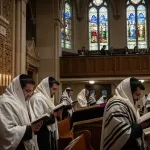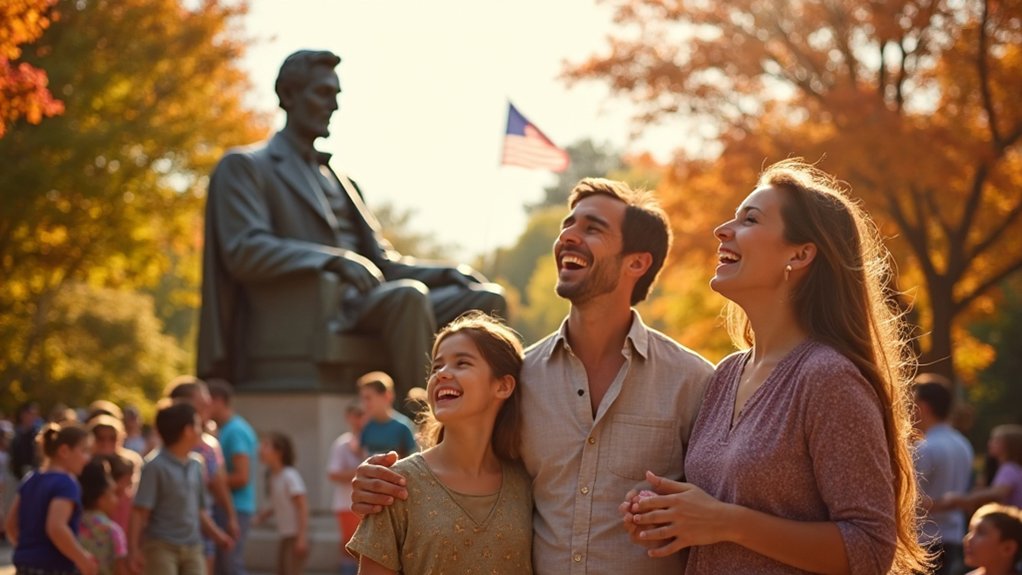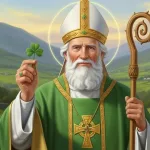Have you ever wondered why Abraham Lincoln made Thanksgiving a national holiday? Abraham Lincoln’s decision to establish Thanksgiving as a national holiday wasn’t just about enjoying turkey and spending time with family. During the Civil War, Abraham Lincoln saw Thanksgiving as a way to bring unity and hope to a divided nation. By making Thanksgiving a national holiday, Abraham Lincoln encouraged Americans to come together, express gratitude, and begin healing. Let’s take a closer look at why Abraham Lincoln made Thanksgiving a national holiday and how this tradition continues to unite people across the country.
The Historical Context of Thanksgiving
Thanksgiving has a rich and fascinating history in America. The origins of Thanksgiving can be traced back to a mix of Indigenous harvest festivals and European traditions.
When exploring the origins of Thanksgiving, you’ll discover that communities gathered to celebrate and express gratitude for successful harvests. Over time, the origins of Thanksgiving evolved, blending customs and creating a special holiday rooted in gratitude and unity.
Today, the origins of Thanksgiving continue to remind us of the importance of coming together to honor both the land and the diverse people who make up our nation.
Abraham Lincoln’s Proclamation
In 1863, during the height of the Civil War, President Abraham Lincoln issued Abraham Lincoln’s Proclamation, which established a national day of Thanksgiving.
With Abraham Lincoln’s Proclamation, he urged Americans to come together in gratitude and unity, even in the face of adversity.
Abraham Lincoln’s Proclamation was a call for hope and healing, inviting people to reflect on the nation’s shared values and strength.
This historic proclamation continues to inspire Americans to celebrate Thanksgiving as a time of gratitude and togetherness.
The Role of Sarah Josepha Hale
Sarah Josepha Hale and the History of Thanksgiving
Sarah Josepha Hale played a significant role in the history of Thanksgiving. As a passionate writer and editor, she believed that Thanksgiving should be celebrated as a national holiday.
Through her influential letters to presidents and public campaigns, Sarah Josepha Hale continuously promoted the idea of a unified day of gratitude for the entire country.
Her unwavering efforts paid off when President Abraham Lincoln declared Thanksgiving a national holiday in 1863.
Thanks to Sarah Josepha Hale, Thanksgiving became an important tradition celebrated across the United States.
The Influence of the Civil War
The Influence of the Civil War
The influence of the Civil War played a crucial role in shaping the meaning of Thanksgiving in America. During the influence of the Civil War, the country was deeply divided and faced tremendous hardship, making Thanksgiving a powerful symbol of hope and gratitude.
The influence of the Civil War encouraged families to come together and reflect on their blessings, even in the midst of conflict. President Lincoln recognized the influence of the Civil War on the nation and officially established Thanksgiving as a way to promote unity and resilience.
National Unity and Thanksgiving
Thanksgiving and National Unity
Thanksgiving plays a powerful role in promoting national unity across the country. When families and friends come together for Thanksgiving, they take part in a tradition that bridges differences and brings people closer.
This beloved holiday encourages everyone to reflect on shared values and express gratitude for what they have. By celebrating Thanksgiving as a community, people help build stronger connections and foster national unity, even during challenging times.
Whether you’re gathering around the table or sharing a meal with loved ones, Thanksgiving is an opportunity to celebrate national unity and create lasting memories together.
The First National Thanksgiving Celebration
The First National Thanksgiving Celebration
The first national Thanksgiving celebration holds a special place in American history. In 1863, after the turmoil of the Civil War, President Abraham Lincoln declared the first national Thanksgiving celebration to help unite a divided country.
Families across the nation gathered for the first national Thanksgiving celebration, enjoying turkey, pumpkin pie, and expressing gratitude for their blessings.
This first national Thanksgiving celebration represented a moment of hope and healing, encouraging people to come together and appreciate their shared values, even in challenging times.
The Legacy of Lincoln’s Decision
The Legacy of Lincoln’s Decision
The legacy of Lincoln’s decision to establish a national Thanksgiving celebration continues to shape American traditions today. Lincoln’s decision brought families together each November to express gratitude and unity, creating a time for reflection and togetherness.
Thanks to Lincoln’s decision, Thanksgiving now serves as a reminder of resilience and hope, encouraging communities across the nation to celebrate their shared blessings.
The enduring legacy of Lincoln’s decision is felt every Thanksgiving, as people from diverse backgrounds come together to honor the spirit of gratitude and community.
Conclusion
To sum up, Abraham Lincoln made Thanksgiving a national holiday to bring Americans together during a time of deep division. By declaring Thanksgiving a national holiday, Lincoln encouraged everyone to pause and reflect on gratitude and unity, even in the midst of the Civil War. His decision to establish Thanksgiving as a national holiday strengthened the sense of community and shared values across the country. Today, whenever you celebrate Thanksgiving as a national holiday, you’re participating in a tradition that was created to inspire hope and healing for all Americans.
José Lucas is a researcher of history and spirituality, driven by a lifelong fascination with how faith shapes the human experience. He specializes in exploring the historical contexts of diverse traditions, translating ancient wisdom into practical insights for the modern seeker. At ABPray, José’s mission is to guide readers through the world’s vast spiritual heritage with curiosity and reverence, fostering a deeper understanding of the universal values that unite us all.
Faith & Celebration
Yom Kippur: when tradition claims continuity while meaning completely transforms
When a modern Jewish family sits in synagogue on Yom Kippur, fasting, praying, confessing sins in communal voice, they believe they are practicing an unbroken tradition stretching back 3,400 years to Leviticus. But this belief contains a profound falsehood. Modern Yom Kippur is not the same as biblical Yom Kippur. Structurally, theologically, and practically, they […]
Holidays
When you’re Muslim and your coworkers want you at the Thanksgiving table: the hidden textual war over gratitude in Islam
Just what influences some Muslims to forgo festive celebrations, and how do these choices reflect their deeper values and beliefs? Discover the compelling reasons behind their decisions.
Holidays
The architecture of sacred time: how different countries calculate easter and why it reveals the machinery of religious authority
Uncover the reasons behind the varying dates of Easter celebrations worldwide and discover how calendars influence this cherished holiday. What secrets lie in these differences?
Holidays
Saint Patrick’s Day beyond the green: how religion, nationalism, and diaspora turned a christian feast into a global political symbol
Saint Patrick’s Day is often perceived as one of the most accessible cultural celebrations in the world. It appears lighthearted, colorful, and deliberately uncomplicated. Green clothing, parades, shamrocks, music, and alcohol dominate the imagery. Participation requires no explanation, no commitment, and no prior knowledge. For many, it is simply a festive day loosely associated with […]
Holidays
Historical origins of Halloween celebration
Curious about Halloween’s ancient origins? Discover the Celtic, Roman, and Christian influences that shaped this spooky celebration and what they reveal today.
Holidays
Religions that prohibit celebrating Halloween
Analyze the beliefs of five religions that skip Halloween festivities—discover the reasons behind their choices and what they celebrate instead.






